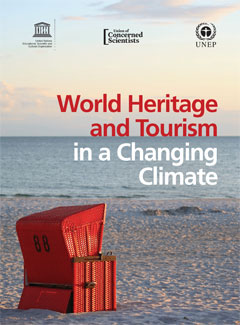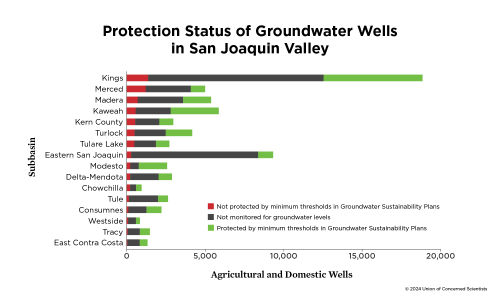Climate change is fast becoming one of the most significant risks for World Heritage sites across the globe.
Designated for their global significance and universal value to humankind, many World Heritage sites are major tourist destinations. Some are among the most iconic places on Earth.
Now rising seas, higher temperatures, intensifying weather events, and other climate impacts threaten many of these locations and the local economies that depend on them.
World Heritage sites at risk
This new report lists 31 natural and cultural World Heritage sites in 29 countries that are already being impacted by climate change and are vulnerable to increasing temperatures, melting glaciers, rising seas, intensifying weather events, worsening droughts, and longer wildfire seasons.
Authored by the United Nations Educational, Scientific and Cultural Organization (UNESCO), the United Nations Environment Program (UNEP), and the Union of Concerned Scientists (UCS), the report highlights the urgent need to:
- Identify the World Heritage sites that are most vulnerable to climate change and implement policies and provide resources to increase resilience at those sites
- Ensure that the threat of climate impacts is taken into account in the nomination and listing process for new World Heritage sites
- Engage the tourism sector in efforts to manage and protect vulnerable sites in the face of climate change and educate visitors about climate threats
- Increase global efforts to meet the Paris Agreement climate change pledges in order to preserve World Heritage sites for future generations
Complete list of locations
Explore in-depth case studies and snapshots of World Heritage sites at risk. Links go to the relevant sections of the full report (requires PDF download).
Africa
- Bwindi Impenetrable National Park, Uganda
- Ruins of Kilwa Kisiwani and Ruins of Songo Mnara, United Republic of Tanzania
- Cape Floral Region Protected Areas, South Africa
- Lake Malawi National Park, Malawi
Arab world
- Ouadi Qadisha (the Holy Valley) and the Forest of the Cedars of God (Horsh Arz el-Rab), Lebanon
- Wadi Rum Protected Area, Jordan
- Ancient Ksour of Ouadane, Chinguetti, Tichitt and Oualata, Mauritania
Asia and the Pacific
- Rock Islands Southern Lagoon, Palau
- Hoi An Ancient Town, Vietnam
- Shiretoko, Japan
- Komodo National Park, Indonesia
- Sagarmatha National Park, Nepal
- Lagoons of New Caledonia: Reef Diversity and Associated Ecosystems (France)
- Rice Terraces of the Philippine Cordilleras, Philippines
- Golden Mountains of Altai, Russian Federation
- East Rennell, Solomon Islands
North America
- Yellowstone National Park, United States of America
- Statue of Liberty, United States of America
- Old Town Lunenburg, Canada
- Mesa Verde National Park, United States of America
Latin America
- Port, Fortresses and Group of Monuments, Cartagena, Colombia
- Coro and its Port, Venezuela
- Galápagos Islands, Ecuador
- Huascarán National Park, Peru
- Atlantic Forest South-East Reserves, Brazil
- Rapa Nui National Park (Easter Island), Chile
Europe
- Ilulissat Icefjord (Greenland), Denmark
- Heart of Neolithic Orkney, United Kingdom of Great Britain and Northern Ireland; Stonehenge, Avebury and Associated Sites, United Kingdom of Great Britain and Northern Ireland
- Wadden Sea, Netherlands, Germany and Denmark
- Venice and its Lagoon, Italy
Australia
- Great Barrier Reef: The Australian government requested that UNESCO remove a case study on the Great Barrier Reef from the final report. UCS believes that we need to have these important conversations publicly, which is why we published an updated version of the case study on our blog at the same time the report was released. For more, please see lead author Adam Markham’s statement on the Australian government’s intervention.





